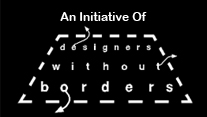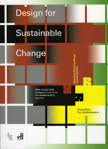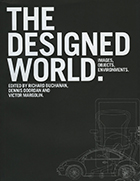by Victor Margolin
Anyone with doubts about Barak Obama’s ability to lead the United States should look at how he has run his campaign. Whereas John McCain’s considerably smaller organization has imploded more than once and is now in the process of self-destructing – riven with accusations and recriminations from within – Obama’s army of workers continues to bring out overwhelming numbers of supporters in states with a long history of delivering electoral college votes for the opposing party.
In fact, by comparing the campaigns of Obama and McCain, we get a convincing picture of how each might act as President of the United States. It may be that Obama’s skills as a community organizer, where accountability to one’s constituency is paramount, have underlain his exemplary campaign organization, even as it has continued to expand. The campaign has managed to open an impressive number of offices across the country and to recruit and direct large armies of volunteers who are going door to door in more places than ever before, gaining new supporters for Obama and registering thousands of first-time voters. In order to keep this sizeable organization going, the campaign has maintained an intensive fund-raising effort, which has been wildly successful.
Does the fact that thousands of people are willing to contribute to the campaign both because they like Obama’s message and because it is delivering results, tell us something about the public’s potential willingness to pay taxes to a government that they perceive to be equally successful? McCain and Palin have devoted considerable effort to demonizing big government and discouraging the impulse to pay taxes in exchange for valued services. Is it any wonder that they have convinced their supporters that taxes are bad? Who wants to support to a government that cannot deliver a clear consistent message that tells its citizens how it will help them? McCain’s campaign offers ample evidence of how dysfunctional a government under his watch might be. Not only has he changed his message from day to day but he has also done so several times in the same day. As opposed to the thousands of volunteers who are working for Obama and who might also dedicate some of their time and energy to social causes if he is elected, McCain has had to pay campaign workers, even at the grassroots level.
McCain has charged that he would more effectively lead the United States in its relations with government leaders, including hostile ones, around the world. However, is the belligerency of his campaign any indication of how he might engage with Vladimir Putin, Hugo Chavez, or Mahmoud Ahmadinejad? If he has managed to demonize Barak Obama, a decent human being with good intention towards his fellow human beings, should we believe that McCain would resist antagonizing world leaders whom he deems hostile? McCain’s belligerent personality has been more than evident in the closing weeks of the campaign, just as Obama has remained statesmanlike while delivering strategic counter punches.
Comparing the two campaigns, we see in the case of Obama a well-run organization that is adequately funded and is delivering extraordinary results. Obama has staff members in place all the way down to the local level who are doing their jobs with a minimum of confusion and a maximum of enthusiasm and efficacy. We see just the opposite in the McCain camp – an organization rife with dissension that has lost its way. McCain has not been able to provide effective leadership for his campaign workers nor has he convinced the American people that he is capable of presiding over a federal government with thousands of employees and programs. As a potential world leader, McCain has shown the public that he is angry and willing to attack his opponent on spurious grounds, manufacturing false crises just as he might do on the world stage. Obama by contrast has presided over a much larger organization than McCain, one that has continued to add new adherents while retaining its sense of order and its consistent message. Obama’s potential popularity abroad is already evident in the large crowds that have turned out to hear him speak, even though he is only a presidential candidate and not the American president. Judging from the two campaigns, its not hard to see how each candidate might run the government and engage the world. The case has been made.
Victor Margolin, Professor Emeritus of Design History in the Department of Art History of the University of Illinois at Chicago and a founding editor of DesignIssues, is a regular contributor to Design-Altruism-Project.











Leave a Reply
You must be logged in to post a comment.